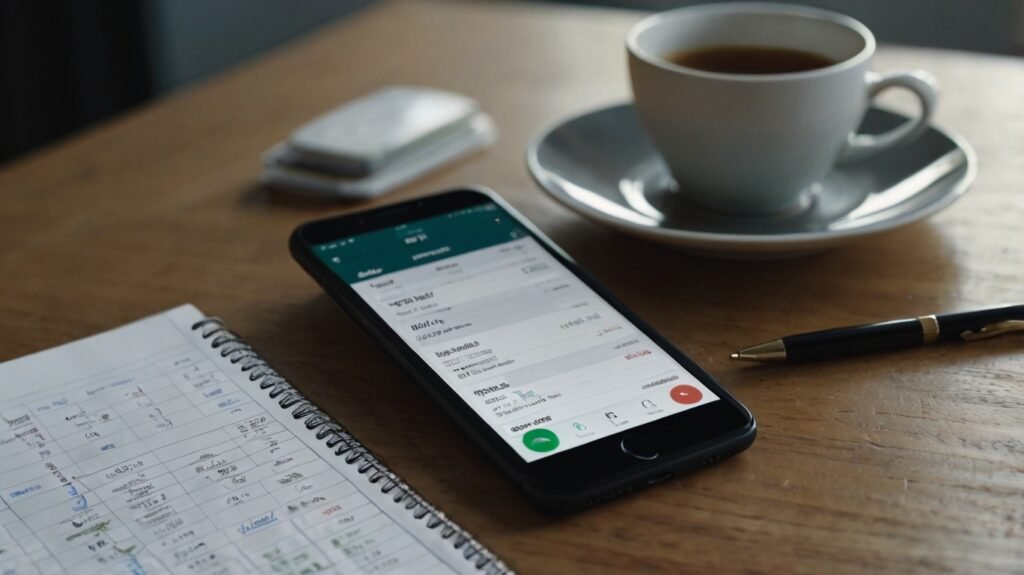In today’s world, saving money on everyday expenses is more crucial than ever. Whether you’re trying to build an emergency fund, save for a big purchase, or just make your budget stretch further, learning how to cut down on the little costs can make a big difference. Let’s dive into some practical, smart ways you can save money in your daily life.
Assessing Your Current Spending Habits
Before you start saving, you need to understand where your money is going.
Tracking Your Daily Expenses
The first step in saving money is tracking your expenses. Use an app, a spreadsheet, or even a simple notebook to write down every penny you spend. Seeing it laid out in front of you will help you identify where you can cut back.
Identifying Unnecessary Purchases
We all make impulse buys or spend on things we don’t truly need. Are you guilty of grabbing an overpriced coffee every morning? By identifying these small purchases, you can start to cut back.
Common Areas of Overspending
Certain categories tend to be where people overspend—dining out, entertainment, and impulse buys are common culprits. Recognizing these areas will allow you to adjust your habits.

Smart Grocery Shopping Strategies
Planning your meals in advance can save both time and money. By knowing exactly what you need, you avoid unnecessary trips to the store and prevent impulse purchases.
Buying in Bulk and Storing Properly
Buying in bulk can often save money in the long run, especially on non-perishable items like rice, pasta, and canned goods. Just make sure to store items correctly to prevent spoilage.
Shopping with Coupons and Discounts
Take advantage of sales, coupons, and loyalty programs. You’d be surprised how much you can save by simply paying attention to discounts.
Avoiding Impulse Buys at the Grocery Store
Stick to your shopping list and avoid those tempting items strategically placed at eye level. These little extras can quickly add up.
Saving on Utilities
Turning off lights when they’re not needed, using energy-efficient appliances, and unplugging devices can all help reduce your electricity bill.
Optimizing Water Usage
Simple habits like shorter showers, fixing leaks, and using water-efficient appliances can save a significant amount of water—and money.
Taking Advantage of Energy-Saving Programs
Many utility companies offer programs to help reduce energy use, such as rebates for energy-efficient appliances or free energy audits.
Cutting Transportation Costs
Sharing rides with coworkers or using public transportation can drastically cut down on gas and car maintenance costs.
Maintaining Your Vehicle for Efficiency
Regular maintenance like oil changes and keeping your tires properly inflated can help your car run more efficiently and save you money on fuel.
Walking or Biking When Possible
If you live close to work or frequently run small errands, consider walking or biking. Not only will you save money, but you’ll also get a little exercise.
Entertainment on a Budget
Cutting the cord and switching to streaming services can save you a bundle. Plus, many streaming platforms offer free trials or cheaper bundle deals.
Free or Low-Cost Local Events
Check out your local community for free events, like festivals, park activities, or museum days. You can often have fun without spending much money.

Utilizing Libraries and Community Resources
Libraries are a treasure trove of free resources, from books to movies and even classes. It’s an easy way to entertain yourself without breaking the bank.
Reducing Dining Out Expenses
Cooking at home is generally much cheaper than dining out. Plus, you have control over the ingredients and portion sizes, which can also be healthier.
Dining Out Strategically with Deals
If you enjoy eating out, consider dining during happy hours, using restaurant coupons, or sharing meals to reduce costs.
Avoiding Beverage Costs
Opt for water instead of ordering drinks when dining out—those extra beverages can significantly inflate your bill.
Clothing and Fashion Savings
Thrift stores and consignment shops are great for finding high-quality clothing at a fraction of the price. You’ll often find unique items too.
Taking Advantage of Sales and Clearance
Always keep an eye out for sales or clearance items. Shopping out of season can also net you major discounts on clothing.
Quality over Quantity
Invest in quality clothing that lasts longer, even if it’s more expensive upfront. You’ll save more in the long run by avoiding frequent replacements.
Managing Subscriptions and Memberships
Many people forget about subscriptions they no longer use. Review your bank statements and cancel any that aren’t adding value to your life.
Switching to More Affordable Plans
Look into switching to lower-tier plans for your subscriptions. For example, many streaming services offer cheaper, ad-supported options.
Utilizing Free Trials
Before committing to a subscription, take advantage of free trials. Just be sure to set a reminder to cancel before being charged.
DIY for Small Repairs and Home Maintenance
Learning basic home maintenance tasks like fixing a leaky faucet or changing air filters can save you from hiring expensive professionals.
Borrowing or Renting Tools
Instead of buying tools you’ll only use once, borrow them from friends or rent from a local hardware store.
Avoiding Professional Costs for Simple Tasks
By doing small repairs yourself, you can avoid hefty professional fees. There are plenty of tutorials online to help guide you through the process.
Saving on Health and Fitness
Gym memberships can be costly, but there are plenty of free workout videos available online. You can also invest in a few simple workout tools like resistance bands.
Taking Advantage of Free Health Resources
Many communities offer free or low-cost health screenings, vaccinations, and wellness programs. Check local resources to save on healthcare.
Choosing Affordable Health Insurance Plans
When selecting a health insurance plan, make sure to compare options and choose one that provides adequate coverage without unnecessary extras.

Smart Financial Tools to Maximize Savings
Many credit cards and apps offer cashback on purchases. Take advantage of these rewards, but be mindful of overspending just to earn points.
Setting Up Automatic Savings Plans
Automating your savings is a foolproof way to ensure you’re consistently putting money aside, without needing to think about it.
Utilizing Budgeting Apps
Budgeting apps can help track your spending and identify areas where you can save. Apps like Mint or YNAB are great for this purpose.
Setting a Savings Goal
It’s important to have an emergency fund for unexpected expenses. Start by setting a realistic savings goal based on your income and needs.
Automating Monthly Contributions
Set up automatic transfers to your emergency fund each month. You’ll be surprised at how quickly it grows without much effort.
How an Emergency Fund Helps You Save in the Long Run
Having an emergency fund prevents you from dipping into your savings or relying on credit when unexpected costs arise.
Sustainable and Eco-Friendly Money-Saving Tips
Embracing sustainability can also save you money. Reuse items, recycle where possible, and avoid buying disposable products.
Buying Secondhand
Whether it’s clothing, furniture, or electronics, buying secondhand can save you money while reducing waste.
Saving Through Minimalism
By adopting a minimalist lifestyle, you can focus on buying only what you need, ultimately saving money and reducing clutter.
Conclusion: Small Changes Lead to Big Savings
Saving money on everyday expenses doesn’t have to be complicated or overwhelming. By making small, intentional changes to your spending habits, you can see a significant improvement in your financial situation. Start by assessing where your money is going, then apply these smart strategies to cut down on costs. Remember, every little bit adds up, and over time, you’ll be amazed at how much you’ve saved.
FAQs
- What are the best apps to track expenses?
Some popular apps include Mint, YNAB (You Need A Budget), and PocketGuard. These apps help you monitor your spending and identify areas for improvement. - How much should I aim to save from my income?
A good rule of thumb is to save at least 20% of your income, but this may vary based on your personal goals and financial situation. - Can meal planning really save money?
Yes! Planning meals reduces impulse buys, minimizes food waste, and allows you to take advantage of bulk buying and sales. - What’s the easiest way to start building an emergency fund?
Start small. Even saving just $10 or $20 a week can add up over time. Automating contributions makes it easier. - Is it worth it to cut out small expenses like coffee?
While cutting out small expenses helps, it’s more effective to focus on larger costs like rent, utilities, and transportation. However, every bit counts!
